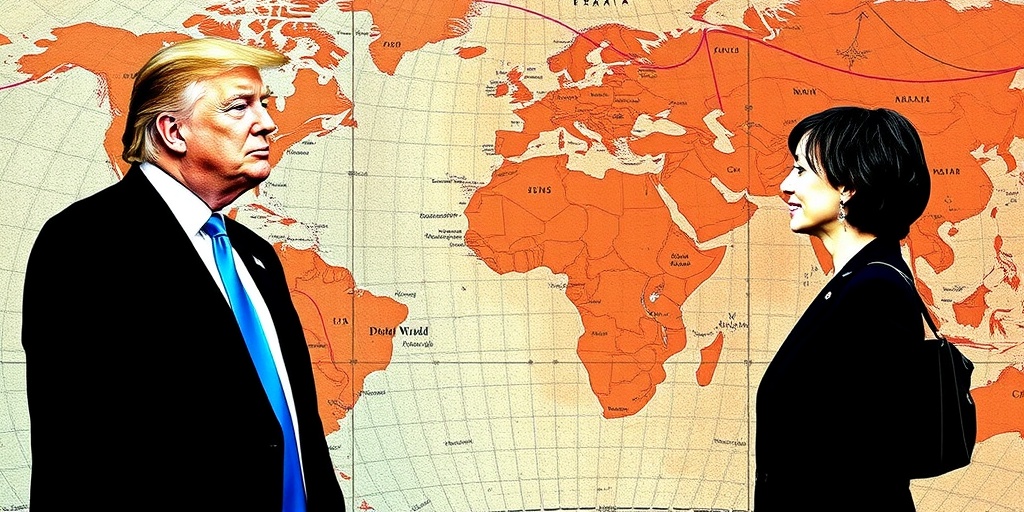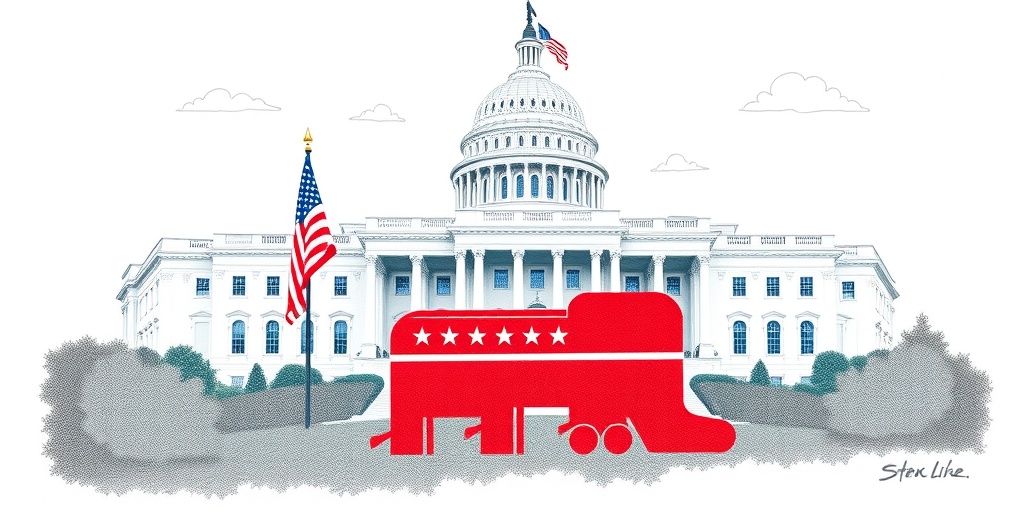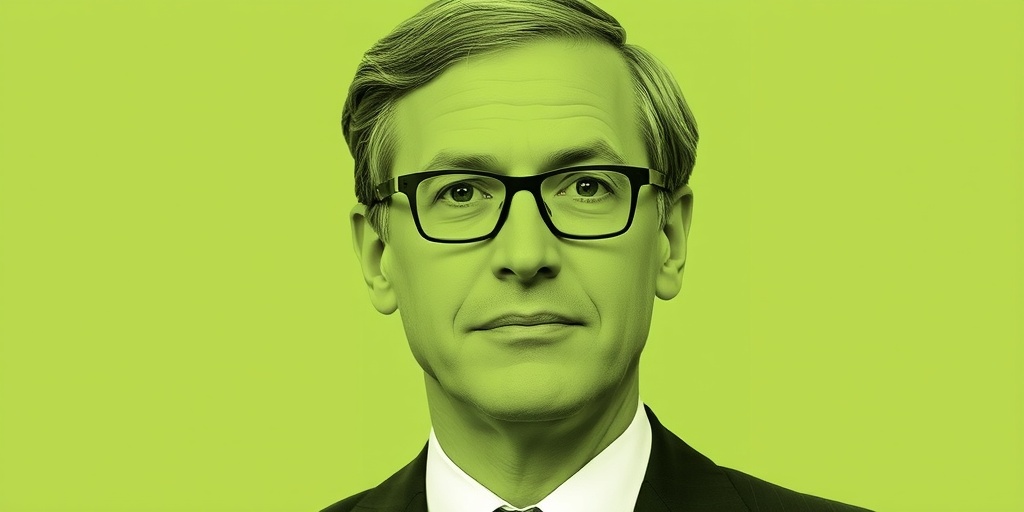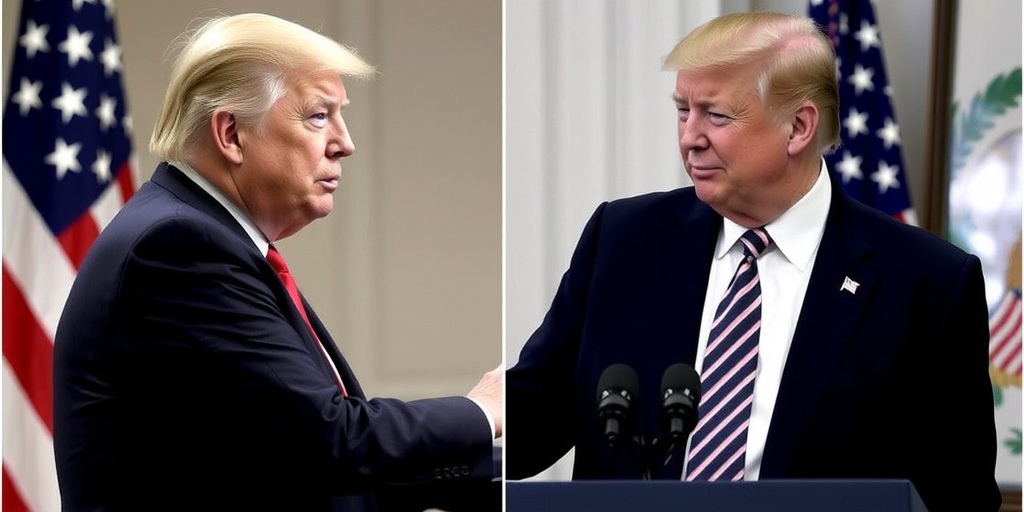Now Reading: Trump Oligarchy Moves to Washington, Acquiring Prime Properties
-
01
Trump Oligarchy Moves to Washington, Acquiring Prime Properties
Trump Oligarchy Moves to Washington, Acquiring Prime Properties
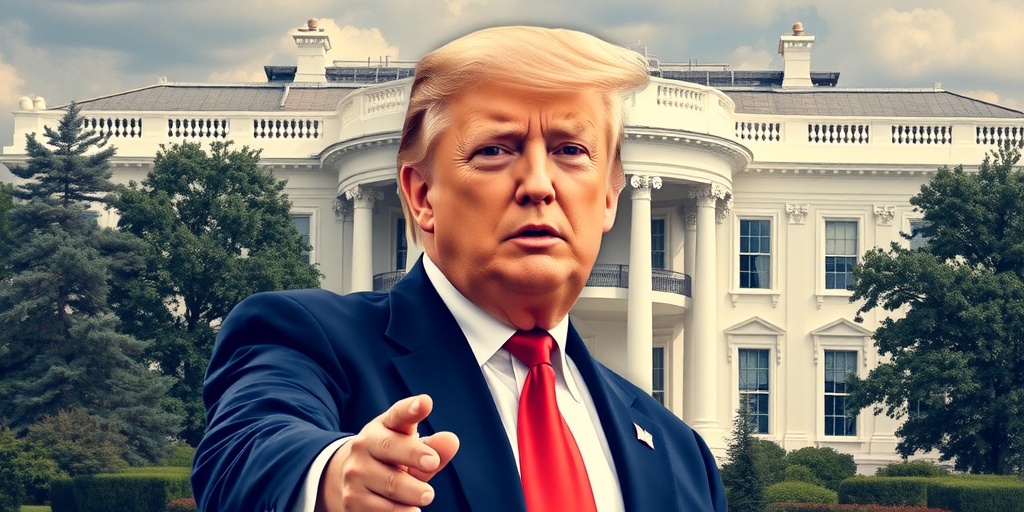
A New Wave of Oligarchy in Washington D.C.
In a recent farewell address, President Biden issued a stark warning to the nation: an oligarchy is emerging in America. This assertion has gained traction as the newly appointed administration, led by President-elect Donald J. Trump, shows an unprecedented concentration of wealth among its ranks. The landscape of Washington D.C. is rapidly changing as billionaires flock to the capital, significantly impacting the luxury real estate market and the power dynamics within the government.
Among the top-tier of wealthy cabinet picks is Elon Musk, the founder of Tesla and SpaceX, whose net worth is estimated at a staggering $429 billion, making him the richest person in the world. Trump himself has a fortune estimated at $6.8 billion. This influx of billionaires into positions of power raises questions about the intertwining of wealth and governance, as many of these individuals will oversee the very industries that helped them amass their fortunes.
Michael Waldman, former chief speechwriter for President Bill Clinton and currently head of the Brennan Center for Justice, drew parallels to the Gilded Age, remarking that while enormous wealth has returned to governance, individuals such as John D. Rockefeller did not directly influence the presidential campaign or occupy the White House. Yet, Musk’s substantial financial contributions to Trump’s campaign may allow him an unprecedented level of access to governmental decision-making.
The real estate market has been witnessing a significant boom, primarily driven by the wealth of Trump’s appointees. Howard Lutnick, Trump’s nominee for commerce secretary, recently purchased a French Chateau-style home for a record price of $25 million. This golden era of wealth accumulation has led to an increase in demands for high-end properties, with luxury real estate agents expressing concerns over the dwindling availability of trophy homes in Washington.
“This is the second wave of wealth we are seeing resulting from Trump’s second term,” noted Jim Bell from TTR Sotheby’s International Realty. Wealthy newcomers are now actively seeking homes and are willing to pay substantial amounts to secure prime real estate in the capital. Sally Quinn, a journalist and author, shared her experience of being approached with enticing offers for her historic Georgetown home, highlighting the surging interest in Washington D.C.’s luxury market.
Local reports also indicate that Musk is eyeing the Line Hotel in Adams Morgan, with plans to convert it into a private club. His anticipated role in the administration includes co-leading a newly established Department of Government Efficiency, alongside Vivek Ramaswamy, another billionaire with aspirations for political leadership.
The housing demand is not limited to current appointees; an influx of wealthy individuals connected to the administration has also been noted. “It’s a seat at the table that many are looking for,” stated Jonathan Taylor of TTR Sotheby’s. The motivations for these big-money players extend to influencing policy decisions in their favor, such as oil drilling and regulatory adjustments.
David Rubenstein, co-founder of the Carlyle Group, remarked on the dramatic shift in Washington’s real estate landscape, where property prices appear favorable compared to other elite markets such as New York City. While Democrats, including President Biden’s cabinet, comprise a smaller range of wealth compared to their Republican counterparts, there are still notable millionaires present who wield significant influence.
The Trump administration’s current line-up holds considerable wealth beyond that of previous officeholders, which raises concerns regarding the relationship between capital and governance. Secretary of State Rex W. Tillerson, for instance, had reported assets of around $350 million, but the current nominations dwarf those figures.
Wealthy figures like Jeff Bezos and Peter Thiel have long secured their homes in desirable Washington neighborhoods, reflecting a broader trend towards high-net-worth individuals reshaping the city’s demographic and political landscape. Kalorama, a neighborhood that once catered to established elites, is now a hotspot for tech moguls and billionaires seeking proximity and influence.
Despite the allure of significant financial gain surrounding political power, some wealthy individuals, like Charles Kushner and Warren Stephens, will take their talents abroad in ambassadorial roles. With their movements, the dynamics of power and wealth continue to fuel speculation about future implications for Washington D.C. and national politics as a whole.
In summary, the ongoing transformation in Washington D.C. exemplifies the powerful intersection of wealth and governance. As the richness of the administration grows, so do apprehensions about the implications this has for democracy and representation in the United States. The outcomes remain uncertain, but the narrative of an emerging oligarchy appears increasingly likely in this new political landscape.
Stay Informed With the Latest & Most Important News
Previous Post
Next Post
-
 01New technology breakthrough has everyone talking right now
01New technology breakthrough has everyone talking right now -
 02Unbelievable life hack everyone needs to try today
02Unbelievable life hack everyone needs to try today -
 03Fascinating discovery found buried deep beneath the ocean
03Fascinating discovery found buried deep beneath the ocean -
 04Man invents genius device that solves everyday problems
04Man invents genius device that solves everyday problems -
 05Shocking discovery that changes what we know forever
05Shocking discovery that changes what we know forever -
 06Internet goes wild over celebrity’s unexpected fashion choice
06Internet goes wild over celebrity’s unexpected fashion choice -
 07Rare animal sighting stuns scientists and wildlife lovers
07Rare animal sighting stuns scientists and wildlife lovers













